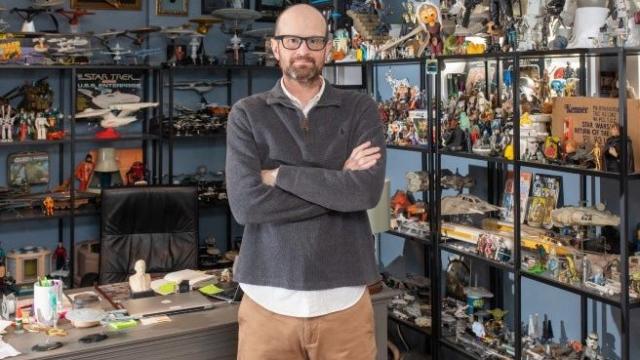In the past few years, if you’ve found yourself sitting around, unsure of what to watch, Brian Volk-Weiss usually has an answer. You may not know his name but if you have a popular streaming service, you know his shows. Down to Earth with Zac Efron on Netflix. Behind the Attraction on Disney+. A Toy Store Near You on Amazon. These, along with dozens upon dozens of comedy specials starring everyone from Kevin Hart to Ali Wong, are but a sampling of the entertaining, bingeable shows Volk-Weiss and his company, the Nacelle Company, have created.
Personally, I became a fan in 2017 when he released a show on Netflix called The Toys That Made Us. The offbeat documentary series focused on the creation of some of your favourite toys ever (Star Wars, Barbie, Transformers, etc.) was such a hit, Volk-Weiss and his team began to formulate another show of a similar ilk. It was called… The Games That Made Us. That show never came to fruition but, in a weird way, it gave birth to The Movies That Made Us, which just released its third season last month.
Having spent many hours enjoying older episodes on movies like Back to the Future, Home Alone, and Jurassic Park, I was excited to dive into the new season, which covers films like John Carpenter’s Halloween, Wes Craven’s A Nightmare on Elm Street, James Cameron’s Aliens and Paul Verhoeven’s RoboCop. As I was watching I thought “These shows are about how these movies get made. I wonder how this show gets made?” A few weeks later, I found myself on the phone with the producer learning all about The Movies That Made Us: where it came from, how they pick the films, the process for getting guests, and how that unmistakable love it or hate it comedy tone was crafted. We also discussed his latest pop culture creation, Centre Seat, which is a 10-episode History Channel docuseries on Star Trek, and he told us stories about speaking with Aliens star Sigourney Weaver as well as Die Hard director John McTiernan that are simply excellent. Read our interview below, which has been edited for clarity.
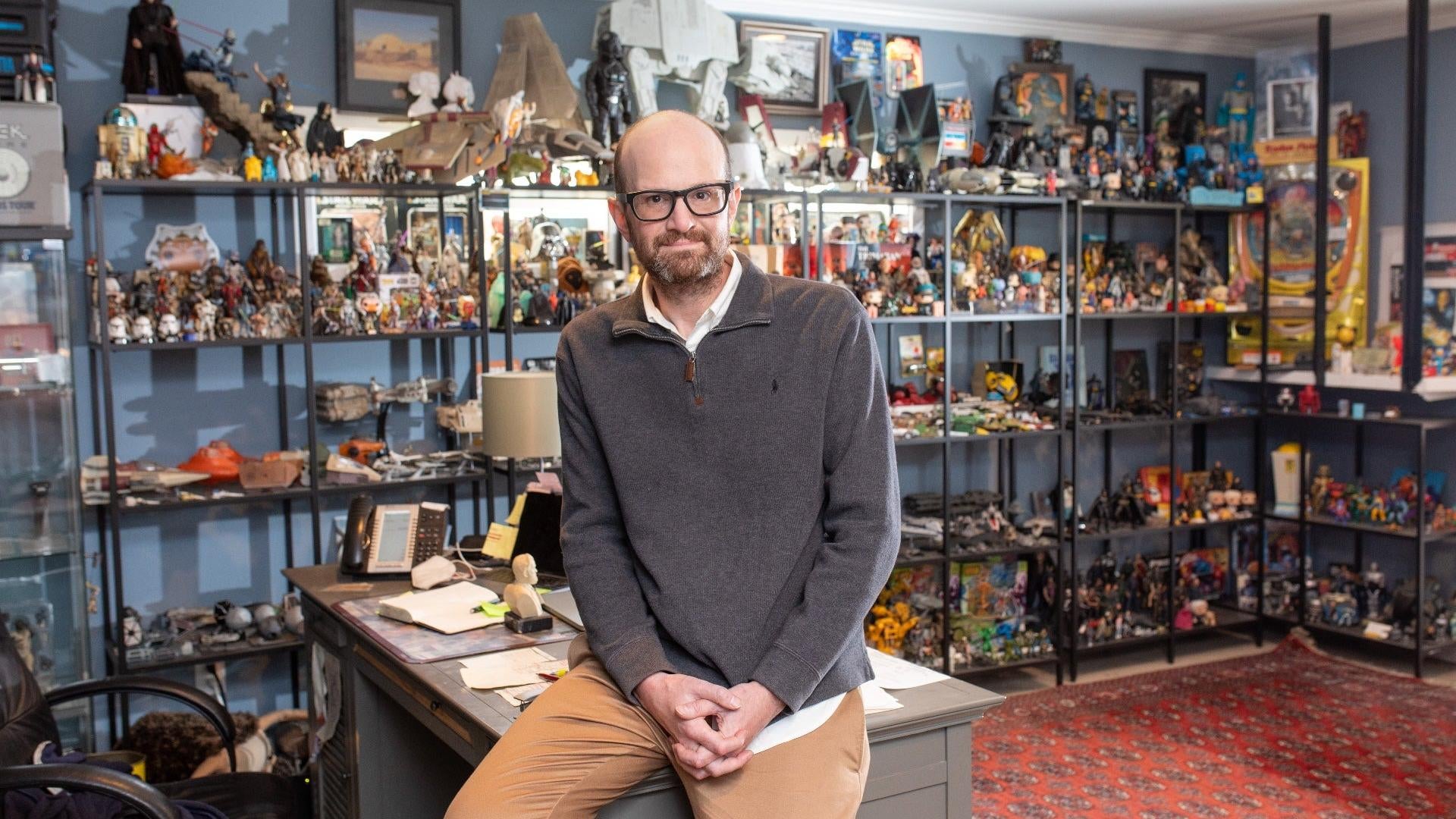
Germain Lussier, Gizmodo: What is the basic origin story for The Movies That Made Us?
Brian Volk-Weiss: So we did this show called The Toys That Made Us, which is exactly what The Movies That Made Us is, except about toys. After season one came out, Netflix asked me to come in and talk about the future. It’s kind of funny, we conservatively spent at least 100, but it could have been 125 hours, making a sales tape and a deck, probably an 80 or 90-page deck about The Games That Made Us. And we worked on it for about five or six weeks. All hands on deck. Then, I don’t even remember what made me do this, but like literally the day before the meeting, I asked our art department to photoshop Frank Sinatra’s head on the famous picture of Bruce Willis standing in front of the Nakatomi Plaza building from the Die Hard poster because I knew that Die Hard was actually a sequel to a Frank Sinatra movie. So I went to the Netflix meeting and 80% of the meeting was about The Games That Made Us and then the exec in the room was like, “Hey, what’s in the tube?” I took the poster out of the tube and, as always, proving that God has a sense of humour, the thing we spend 100-plus hours on did not move forward at that time — The Movies That Made Us did.
Gizmodo: Both of those shows have a very unique humour and tone that makes them stand out. They’re funny, there’s repetition, callbacks, etc. How did that style develop?
Volk-Weiss: My background is in comedy. So I was a manager, for over a decade, only of comedians. When Toys That Made Us got greenlit, instead of hiring the kind of editors and story producers that work on quote unquote documentaries — like big fancy documentaries — I hired the editors I knew, and all of those editors had comedy backgrounds. So that was part of it but the other part of it was I made it very clear from the beginning, because I’m a huge documentary fan — like going back to Blockbuster Video when it was hard to be a documentary fan — one of my pet peeves with a lot of documentaries is you have these documentaries about a fun topic, like toys or something, and they treat it like the rise and fall of the Third Reich.
You know it took me seven years to sell Toys That Made Us. I used to always say to myself, “If I ever actually get the chance to do this, I want to do it fun.” So I just made it very clear and the thing I just said to you about “The rise and fall of the Third Reich,” I said that on day one to everybody working on the show. It’s a show about toys. Let’s keep it about toys. But the thing that’s interesting is I just did what I did. I just did what I thought was right. I didn’t think anything about it. After the show came out, I started hearing from lots and lots of places. “Oh, the new style.” I’m like, “Oh, I guess that is kind of different.” But we didn’t set out to do that.
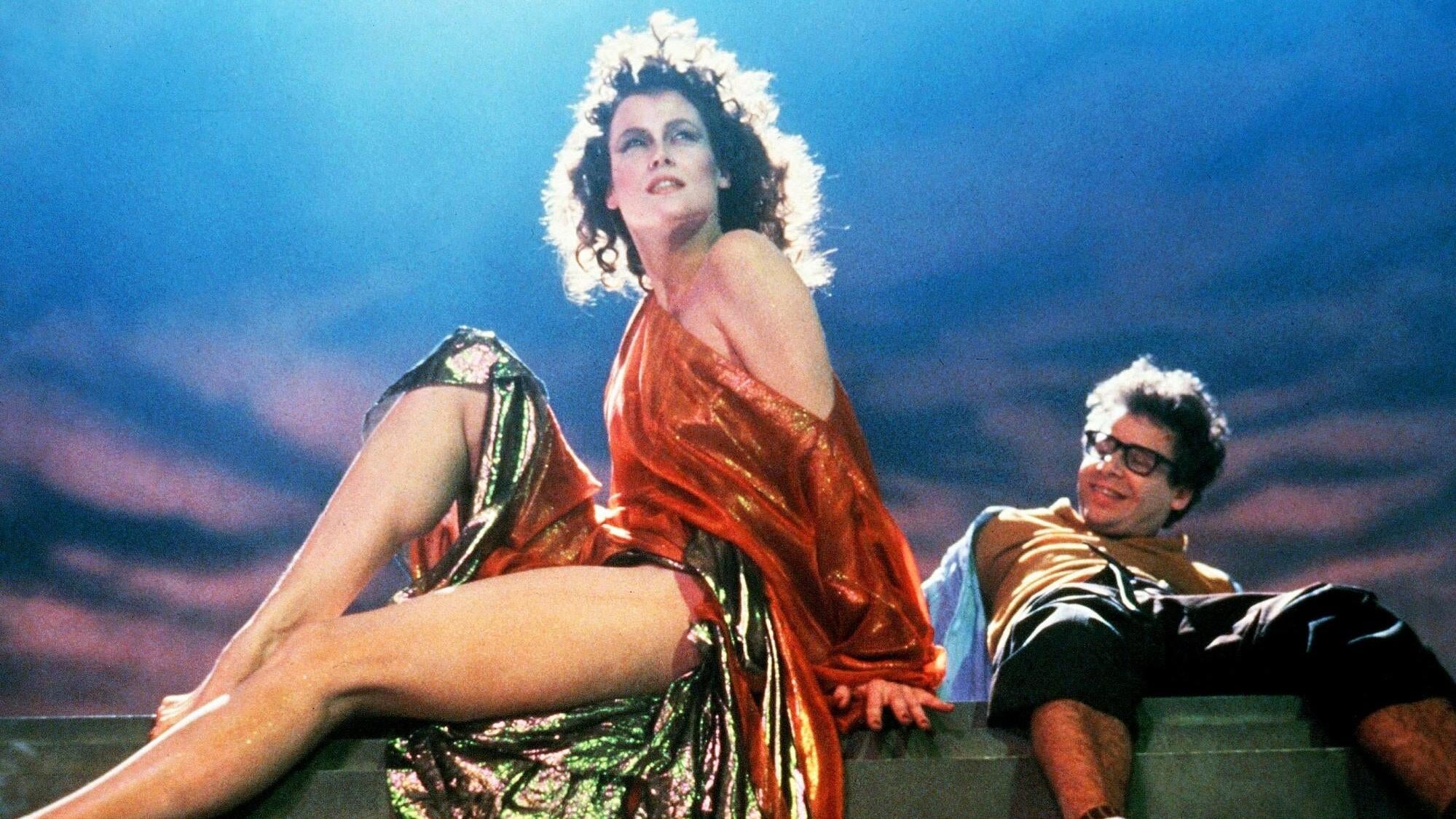
Gizmodo: So is that at the discretion of you, as the director, has it been the editors, how specifically does that humour get crafted?
Volk-Weiss: I’m going to give you a cheesy, clichéd answer but it’s still going to be true and then I’ll give you an example of my answer. And the answer is this, and I swear to you, this is the truth, even though it’s cheesy. It’s a team effort. It’s literally a team effort. So then I’ll walk you through how the team effort works.
I’m extremely involved in picking who we’re interviewing, and I have a lot of little tricks that I use. Like I always try and find the lawyers, which is what made our Star Wars episode of Toys That Made Us work so well, I think. I have all these little tricks and then hopefully we get all the people we want and we do two rounds of interviews for 95% of our subjects. So the story editors, and I am [one] as well, read the transcripts of the pre-interviews and we highlight stuff that we think is important. Then when we do the actual interviews, the actual interviews are based on those highlighted questions and answers from the pre-interview. During the actual interview, I’m taking frantic notes the whole interview, and then at night, when I get home, I type up my notes and I send those to the story producers. The story producers then take my notes, their notes and also they watch the interviews as well and come up with another set of “Oh, this is cool.” Then all of that gets turned into a string out that, I mean, for an hour-long episode, the string out could be four hours long. That then goes to the editors and then the editors take all of the stuff we had all done and then they add their genius. So like I said, it really is a team effort.
Like in the Lego episode we had this great editor, Nick Ferrell. Nick was the one who noticed “The System.” This Lego engineer said “The System.” So Nick was the one who turned that into a callback we kept using the whole episode. I came up with the tree device where the Lego tree gets built and unbuilt depending on how the company was doing health wise. Then our lead editor, Ben Frost — Ben supervises all of this, and Ben is one of the funniest, most talented editors I’ve ever met — puts his genius into it as well. The last thing is like, I’m also very big on the pathos. So for anybody who says they cry when watching our stuff, that’s my fault usually. The way I do it is, it’s this thing I like to do, I call it “The RoboCop,” which is based on this scene from the original RoboCop, where RoboCop as RoboCop goes back to his old apartment and it keeps cutting back and forth between the present and the past. So if you watch everything we do even like Behind the Attraction on Disney+, so much of what we do, a lot of the tear-jerking comes from using that RoboCop device.
Gizmodo: I know exactly what you’re talking about (note: see above) and that’s an awesome answer. The third season of The Movies That Made Us is significantly longer than the previous seasons. How did that happen?
Volk-Weiss: The show did well, and Netflix believed in it and did a big greenlight. I can tell you, it’s not my singing voice. It’s not my charm. It is the performance of the show is all that matters.
Gizmodo OK, so how did you settle on the movies for this season, and actually, all the movies in general?
Volk-Weiss: So let’s say there’s 10 episodes. We’ll send a hundred movies that we’re excited about to Netflix. Netflix will probably whittle it down to 30 movies. We will then start the research into those 30 movies, and they give us their opinion based on the data they have, so I guess it’s not really an opinion. But we then look into all of those movies and we pick the 10 that have the best story and we’re the most excited about. Because, truthfully, there’s a lot of successful movies that there’s nothing really exciting that happened — they greenlit it, they made it, it came out, it was a hit — there was no real drama. So we lose a lot of episodes because there’s not a lot of story and it’s not worth making the episodes because it’s boring; it was good for the filmmakers because they had an easy shoot. But anyway, then we send our final list to Netflix, Netflix approves it — they’ve always approved our final list — and then we go make them. We start the research phase the same day.
Gizmodo: Have you ever had to cancel one because maybe there wasn’t enough story or you couldn’t get enough interviews?
Volk-Weiss: We did cancel one episode. I mean, we replaced it with another episode, but yes, we did. And it was It’s A Wonderful Life.
Gizmodo: Any reason?
Volk-Weiss: The reason was everybody was dead.
Gizmodo: Makes sense.
Volk-Weiss: And we thought we could get around that for a long time. But eventually, it was like, “It’s not going to work.” We would have had to compromise so many things that it was just like, it’s not worth doing it.
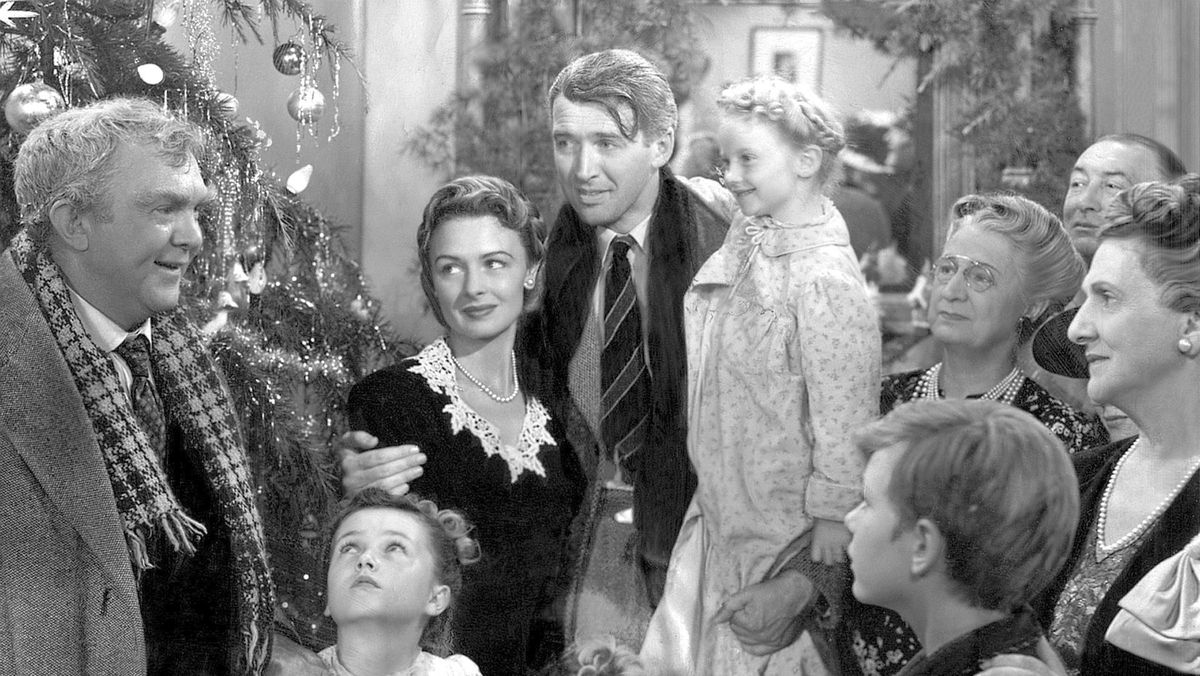
Gizmodo: Is that a common hurdle that the people who were part of the films just aren’t around anymore?
Volk-Weiss: No. There’s no real hurdles, for the most part. I mean, obviously that one case, that’s a hurdle if there’s nobody alive. But I mean, other than that, no, because there’s usually a lot of experts. You can usually do it. I mean, they’re making documentaries about the Civil War and there’s nobody left from that either, so there is a way to do it. But no, that really is the only hurdle we ever had.
Gizmodo: Are there any movies you can’t or won’t do for any reason?
Volk-Weiss: There’s movies we won’t do that they’re, just to be honest with you, they’re just not big enough. Like, we really want four quadrant movies or at least a three quadrant movie. I believe the only exception to that is RoboCop, which I had to beg on my knees to get greenlit and I’m very grateful that they did. But that really is the thing because listen, I love Tombstone. It’s one of my favourite movies of all time. The amount of time, energy, and money it takes to make an episode like this, it’s just not fair to Netflix with their resources to do it about Tombstone. Like, it really has to be something like Home Alone or Dirty Dancing to justify the effort.
Gizmodo: Tell me about the guest process. You said that you were really heavily involved in it. Do you just go out to everybody and see how it turns out? Or is there a specific strategy?
Volk-Weiss: Well, I mean, it starts with the obvious; the actors, the director, and all that. But then during your research, you start to find all these stories and that’s where you really make the episode because you find these people that were witnesses to history. Those are the people that really give the episodes life because they tell you this stuff that doesn’t get talked about on the DVD extras and the YouTube whatever. To be honest with you, that really is the secret to our whole show is that we do that. So like for the Die Hard episode, we were killing ourselves to get the guy who did all the stunts. Jan De Bont, who did the cinematography. Don’t get me wrong, we tried to get Bruce Willis. I’m not going to say we didn’t try, of course we tried. But I knew the episode would be fine without Bruce Willis because he’s done a billion DVD extras. But it was getting the actual craftspeople that make the movies. That’s who we needed to actually tell the story.
Gizmodo: What are your best resources when it comes to finding those stories?
Volk-Weiss: Well, the people and the things that are easy to get, I mean, that’s all done with Google and Lexis Nexis and all that other kind of stuff. But you get the easy stuff done in two or three weeks. So it becomes the hard part very quickly, which is finding out who to get and then going to get them. To answer your question, what’s our best resource? Referrals. Can I can I tell you my favourite referral story?
Gizmodo: Please.
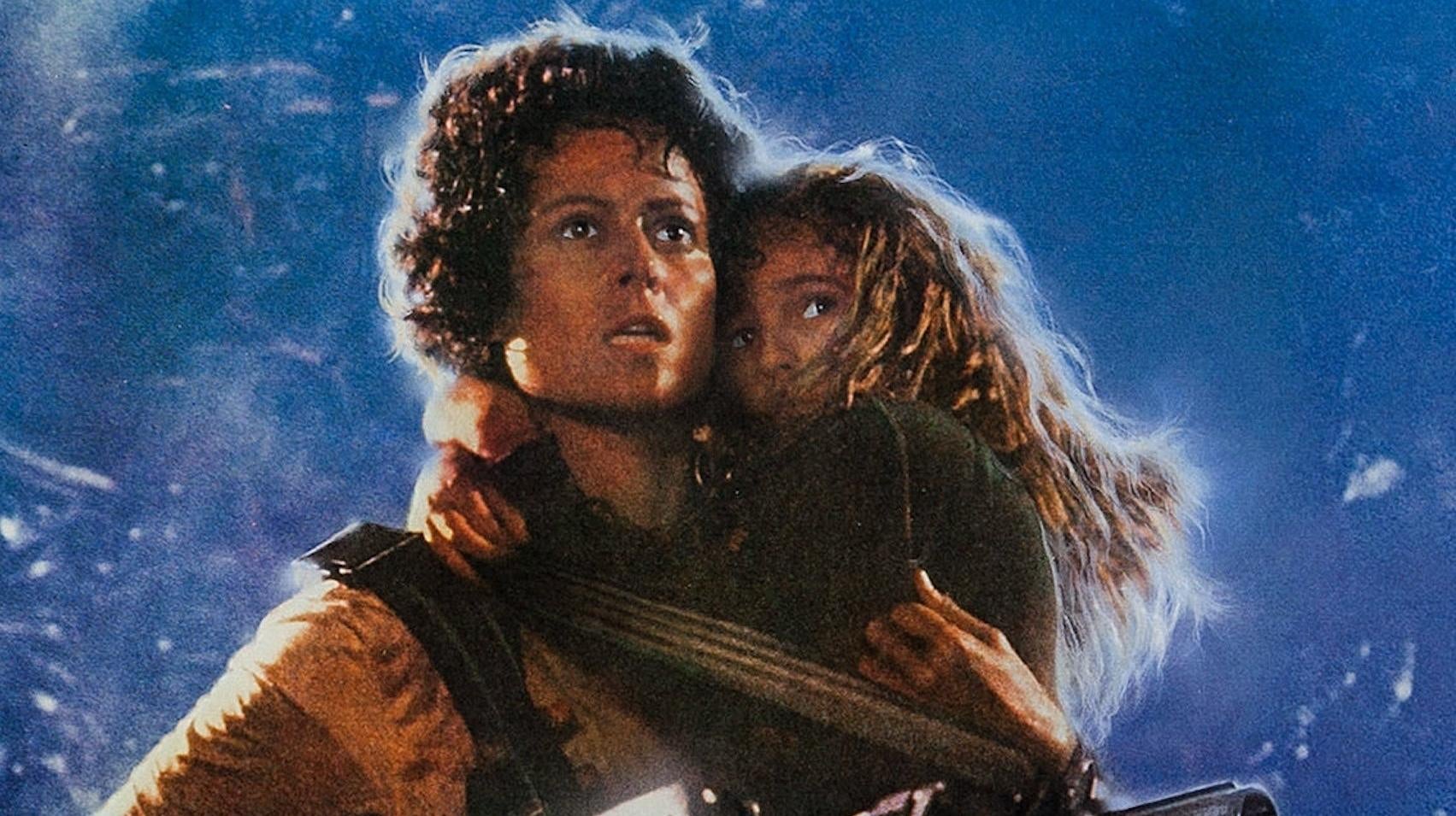
Volk-Weiss: It’s nuts. We were trying for our Aliens episode very hard to get Sigourney Weaver. We were going through agents, lawyers, whatever. Couldn’t get her, couldn’t get her. Then one of my best friend’s college roommates is extremely tight with her, and he asked her to do it and she said, “Yes.” So I interviewed Sigourney. Great interview. We’re wrapping up and she says to me, she goes, “How was Gail?” And I said “I got to be honest with you, Sigourney, Gail hasn’t said yes yet,” and she’s like, “What?” And literally in front of me she called [producer] Gail Anne Hurd and said, “I just did one of the best interviews of my entire life. Why aren’t you talking to this guy?” So that’s how we got Gail. Sigourney hangs up the phone and she goes, “Who else?” I’m like, “Well, we don’t have Carrie Henn,” who played Newt. She literally called Carrie Henn right then and there and left her a voicemail and within, I would say five days of Sigourney’s interview, we had interviewed Gail Anne Hurd and Carrie Henn.
And I just want to say, for the record, I’m not complaining about anybody not wanting to do an interview. You know what I mean? I understand why people might not want to talk about the same movie for 40 years. I get it. Somebody like Sigourney Weaver, I guarantee you every single day her publicist gets five to 50 interview requests. So you just have to keep digging and digging and digging until you find a personal connection. But also you’ve got to be respectful. If somebody says “No” then you leave them alone. You got to be respectful of that, too. First of all, you got to be respectful just as a human being but also you don’t want the reputation of being pushy.
Gizmodo: Besides that amazing story, has there been anyone you didn’t expect to get that you did? Like, frankly, I was shocked to see director John Landis on the Coming to America episode. I’m like, “Wow, he talked to you guys.” [Note: The surprise is because Landis famously had feuds and even a fight with Coming to America star Eddie Murphy and years earlier had been charged with involuntary manslaughter due to the deaths of three people on the set of The Twilight Zone movie.]
Volk-Weiss: Yeah, that was a shocking interview. To put it mildly. Yeah. But I would say the interview that was the hardest to get, was the most complicated and just kind of wacky, and I thought the odds of us getting him were point one per cent, would be John McTiernan for Die Hard. John was at the time, and I believe this still to be true but I could be wrong about that, but McTiernan was, I believe they call it, “evading the law” because he had not paid any taxes. And apparently you’re supposed to do that. So I mean we were digging and digging and digging and digging and digging for like almost a year. And then somehow we got his email address. Then he somehow gave us his wife’s email address. Basically, the way we worked it out was, we had to go to LAX, tell him we were at LAX, then he told us what city he was in. All we knew was it was within two hours, flight time, of LAX. So he told us where he was. We booked the tickets. We flew to the city. His wife told us what hotel he was in. We went to the hotel. Luckily, their conference room was available and we shot the interview in the conference room and then flew back to LA same day.
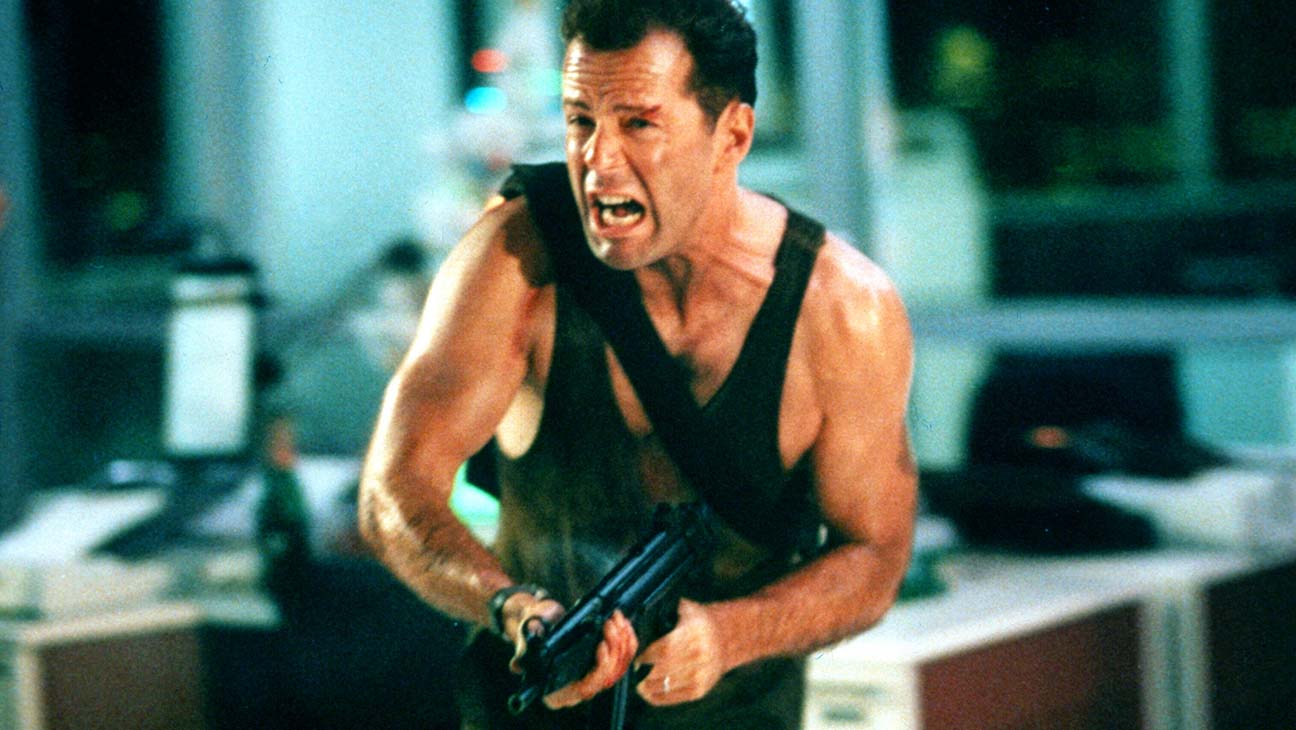
Gizmodo: Wow. That’s crazy. So, in terms of getting guests, has the popularity of the show helped at all? At this point, I’m trying to wonder why anyone wouldn’t do the show.
Volk-Weiss: It’s absolutely helped. I mean, it’s night and day from season one. Night and day.
Gizmodo: Would have you heard any other reasons besides, “I don’t want to talk about Aliens for another 30 years” of why people wouldn’t do the show?
Volk-Weiss: Well, some people want to get paid, which I understand. I think that’s entirely logical and fair. I mean, it’s a moneymaking endeavour, why wouldn’t they want to get paid? The problem is we can’t pay anybody because it’s the cliché, but it’s true. If we pay one person, we’d have to pay everybody. And I mean, every episode we do 70 or 80 interviews so we just can’t afford to. So I would say one of the most common reasons was money, but also covid was a big deal, too. Like we had booked Robert Zemeckis. He was booked. And then because of covid, he became unbooked, which I also understand and respect. So yeah, that’s usually why. Or they just don’t give a shit. There are just some people who are just over it. Will Ferrell does not. Want. To. Talk. About. Elf. You deal with that, too, which again, I understand. That was Gail Anne Hurd’s thing. She’s just sick of talking about [Aliens].
Gizmodo: What’s your favourite story that the show uncovered or you had on set?
Volk-Weiss: [Long pause] You know, being in the school where Home Alone was filmed. That’s a movie I’ve conservatively seen 50 times. And I’ll never forget I was in the school the night before we were shooting just doing a location scout and I walked into the pool. All the basement scenes from Home Alone were filmed in a high school pool. And I’m standing in this gigantic room with a pool, it was 8 or 9 o’clock at night. It was just me, a couple of people from the crew and, somebody from the school. There was no water in the pool so I just walked into it and I was just walking around the empty pool being like, “This is where they stepped on the nail. This is where that crazy fire breathing furnace was.” It just hit me like a ton of bricks: The magic of movies. A scene that scared the shit out of me the first time I saw it done in a dumb arse pool. So that was a very, very personal moment for me because I literally grew up with that movie.
Gizmodo: One of the reasons this show is a hit, I feel, is because you’ve themed episodes to holidays. Christmas last year, Halloween this year. Is that a Netflix thing?
Volk-Weiss: That was definitely Netflix’s idea, which I feel like an idiot that it wasn’t my idea. So yes, thank god. Netflix suggested that.
Gizmodo: Next up you’ve got Centre Seat on History Channel, which is about Star Trek. What can you tell me about that and how is it similar or dissimilar to The Movies That Made Us?
Volk-Weiss: So the inspiration for that was, first of all, I’m a huge Trekkie since I was five years old. You might be surprised to hear. And I love Ken Burns. Like Ken Burns is probably my favourite documentarian of all-time. And I wanted to give the Ken Burns treatment to Star Trek. Also I produced a 50th anniversary Star Trek show that I, to be completely honest with you, wasn’t really happy with how it came out. So I just wanted to try again, but in a much more robust way. Because I mean, 55 years, that’s a lot of time. So it’s really hard to do that in an hour and a half. So that was the inspiration.
And I mean, there’s a ton of differences from Movies That Made Us. I mean, for starters, the entire season is about one property. Two, it’s much more about an overarching story than it is individual stories. So every single episode is connected to the other episodes. My original vision was Lucille Ball and Gene Roddenberry turned the lights on, Rick Berman turned the lights off when Enterprise was cancelled. And we really show the overarching stories that we are able to do when you’re making 10 episodes simultaniously.
Gizmodo: That reminds me, for Movies That Made Us, do you do one at a time or all simultaneously?
Volk-Weiss: Simultaneous. My record is, and this is only possible due to covid and Zoom, my record is five interviews in one day for five different episodes.
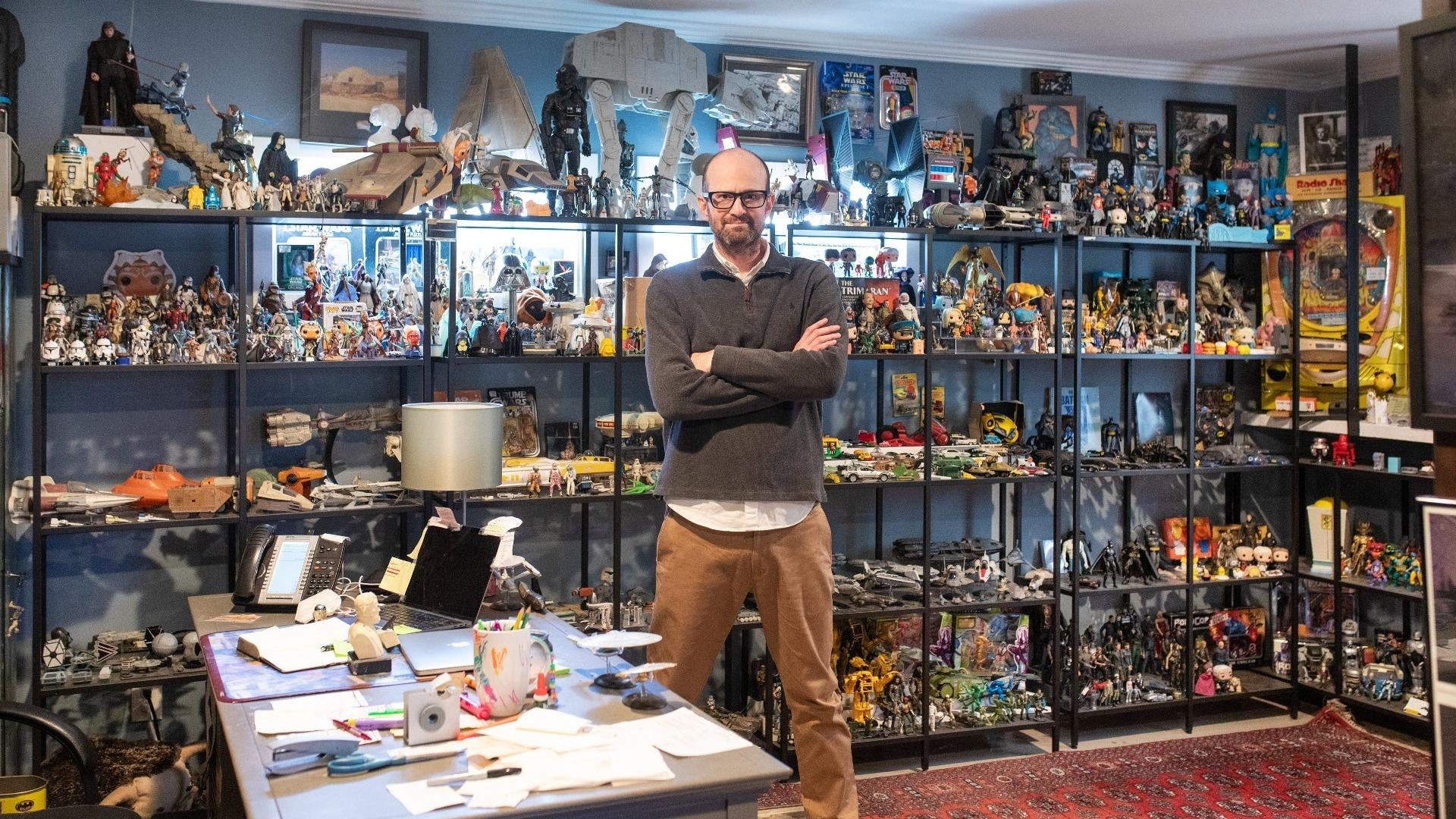
Gizmodo: Last thing, besides talking to John McTiernan in a weird hotel room, what’s something that happened around The Movies That Made Us, and really all your shows, that you never expected to happen.
Volk-Weiss: I mean, to be completely honest with you — and again, this might be a shitty answer, but it’s the truth. I can’t believe any of this happened. I mean, I literally can’t believe it. Before Toys That Made Us, I was a journeyman producer director. I did market research, I found out what the market wanted, I would develop what they wanted and then I would sell it to them and I would go make it. Toys That Made Us was the first time I sold something I was insanely passionate about. And it’s also, I don’t think coincidentally, it’s the first show we ever made that got a second season. Let alone the third season. And almost everything we’ve done since Toys That Made Us has had at least a second season. A Toy Store Near You season four is coming out next month. l truly cannot believe any of it happened. I feel so lucky. I’ve been saying this for over a year or two, I wish there was a word stronger than “surreal” because that’s how this feels to me.
The Movies That Made Us and The Toys That Made Us are currently streaming on Netflix. Visit Volk-Weiss’ official site for info on all his other shows.
